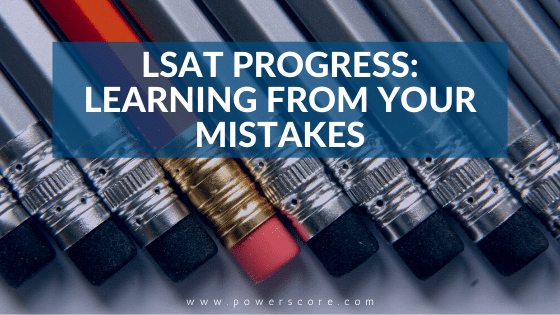People who decide to go to law school, and thus prepare to take the LSAT, tend to have some personality traits in common. They tend to be driven, confident, and prone to blowing any perceived failure completely out of proportion. I’m not putting anyone down. In fact, it should be fairly obvious given my profession that I’m talking as much about myself as anyone else. But, if in addition to myself, I’ve also described you, consider this: you’re not going to progress as quickly as possible unless you learn to not only accept failure but also embrace it.
Now, I’m not saying that you should be happy that you’re missing questions. But you should make friends with your failures. Spend time with them. Learn about them and learn from them; your mistakes have a certain logic.
Find the Pattern
Don’t just generalize, get specific. Take stock of the questions that you miss. Can you identify any particular patterns? Take into account the question type (e.g., Strengthen, Assumption, Must Be True, Weaken etc.), the kind of logic that leads to the conclusion (e.g., causality, conditionality, formal logic, etc.), the use of language in both the stimulus and the answer choices (e.g., qualifiers, modifiers), and other considerations that you can add to your list over time.
As you begin to focus more on the detail of the language and the specific features of the questions that you tend to miss, you’ll discover that you start to notice more categories of information to watch out for and identify the more difficult elements of questions before they trip you up. You’ll be surprised how many pitfalls you can avoid when you start to see them lit up like Times Square on New Year’s Eve.
Use Mistakes for Good
So, don’t make enemies of your mistakes. Don’t avoid them or be ashamed of them. Recognize that your mistakes have a certain logic. Your past mistakes, when properly categorized and analyzed, can help you avoid future mistakes. Make friends with your mistakes, and they’ll start coming around less often.


Leave a Reply